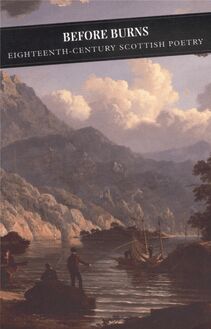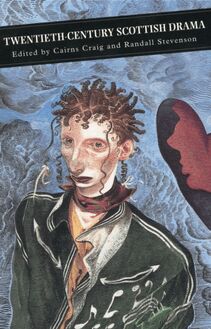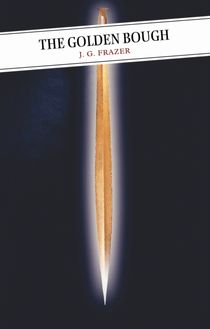-
 Univers
Univers
-
 Ebooks
Ebooks
-
 Livres audio
Livres audio
-
 Presse
Presse
-
 Podcasts
Podcasts
-
 BD
BD
-
 Documents
Documents
-
- Cours
- Révisions
- Ressources pédagogiques
- Sciences de l’éducation
- Manuels scolaires
- Langues
- Travaux de classe
- Annales de BEP
- Etudes supérieures
- Maternelle et primaire
- Fiches de lecture
- Orientation scolaire
- Méthodologie
- Corrigés de devoir
- Annales d’examens et concours
- Annales du bac
- Annales du brevet
- Rapports de stage
La lecture à portée de main
Vous pourrez modifier la taille du texte de cet ouvrage
Découvre YouScribe en t'inscrivant gratuitement
Je m'inscrisDécouvre YouScribe en t'inscrivant gratuitement
Je m'inscrisEn savoir plus
Vous pourrez modifier la taille du texte de cet ouvrage
En savoir plus

Description
Informations
| Publié par | Canongate Books |
| Date de parution | 01 juillet 2010 |
| Nombre de lectures | 0 |
| EAN13 | 9781847675415 |
| Langue | English |
Informations légales : prix de location à la page 0,0400€. Cette information est donnée uniquement à titre indicatif conformément à la législation en vigueur.
Extrait
Eric Linklater
MAGNUS MERRIMAN
Introduced by Douglas Gifford
INTRODUCTION
This is one of the funniest of all twentieth-century Scottish novels, a satire on the movement known as ‘the Scottish Renaissance’. It is also an unusual example of the relatively rare genre of the political novel, although unlike Disraeli or C.P. Snow, Linklater sets up his political world only in order to knock it down. In the same way, the novel relates to a genre developed by D.H. Lawrence, Neil Gunn and Grassic Gibbon, in which it is asserted that an organic relationship exists between man and his natural environment, a relationship which is more important than the superficialities of urban and social life. And then, this relationship in turn is held up to mockery, in a way which locates this novel as the Scottish equivalent of Stella Gibbon’s wonderful parody, Cold Comfort Farm (1932).
But Magnus , like so much of Linklater’s work, defies categorization. Indeed, Linklater was to be disappointed all his life about not being taken seriously by critics. In his various autobiographies he typically both deplored the lack of serious consideration given to his books and mocked his ‘inability’ to impose his own character on his novels. Perhaps, he suggested, ‘I have no character positive enough to impress itself on topics of every sort’ hardly a reflection which will ring true to the reader of this novel! A more valid reason for his critical neglect might be his refusal to follow literary trends and fashions in general. His mockery of modernism after the Great War reveals his scorn for what he saw as ‘the disruption of language’ by writers like Joyce and Eliot, and in Magnus he found ‘indomitable infantility’ amongst most creative writers of the day. But for a full understanding of his apparently contradictory love of and scorn for literature (and even his own work) we must know something of his unusual and restless search for an identity, which perhaps he never really found.
Born in 1899 in Penarth, South Wales, Linklater, son of a sailor from Orkney, and of a Swedish-English mother, was all through his life to encourage the idea that he was the essential Orkneyman. In fact, as his biographer Michael Parnell has revealed, until he was fourteen Linklater had only been to Scotland and Orkney on holiday. When the family moved north it was to Aberdeen, not to Orkney, and Linklater only rooted himself in Orkney on his marriage in 1934. What this reveals is not so much an evasion of truth as the more important pursuit of a dream, comparable to the way Magnus pursues his visions. Like Magnus, Linklater had many such dreams, as a soldier, in two world wars, with a career of great distinction (becoming Commander of the Orkney Fortress in 1940), as a politician (like Magnus, he stood for parliament for the snp in 1933), as a Highland gentleman; and (probably his final dream) as ‘an old peasant with a pen’. It is not surprising that there were contradictions and tensions between these dreams, so varied are they in their values, perspectives and personae . Linklater’s clipped, anglicized army utterance did not speak for the whole man; and perhaps in the end the problem for his writing was that other voices, reductive and mocking, ironic and Rabelaisian, kept undercutting his formally serious and intellectually ambitious self.
The novels reflect this variety, from the light comedy and Anglocentric whimsies of Poet’s Pub , and Ripeness is All , with its Wodehousian frolics in English rectories, to the American and Chinese adventures of his post-Byronic anti-hero, young Juan, to the Catch -22-style mockeries of war and ‘manliness’ in Private Angelo (1946), whose peasant anti-hero freely admits that he ‘lacks the gift of courage’. This novel alone, set beside Linklater’s sympathetic and serious wartime histories (like his moving apologia for the surrender of the Highland Division in 1940), shows the contradiction (or as his fellow Scottish Renaissance writer, the poet Hugh MacDiarmid, would have described it) the antisyzygy at the heart of the man’s view of life. Linklater’s fundamental unwillingness to let himself preach a message, with his preference for lively extremes, may have unsettled critics who wanted consistent development; but it gives his novels a delightful and human unpredictability, which should transcend the vagaries of literary fashion.
Amidst the zigzagging between polar opposites of Scottish-English, flippant and sombre, conservative and sceptical, Linklater’s willed Orkney identity acted as a sheet- anchor. Indeed his forebears had been Orkney men for hundreds of years. Something like Jung’s ‘collective unconscious’, the ‘great race memory’ in the bone, may have been working through him, much as Magnus’s memories of Orkney call more insistently to him than soldiering or journalism, or even Scotland itself. This author’s relations with his fatherland were ambivalent, to say the least.
At Aberdeen University after the war, Linklater changed from medicine to English. As with Magnus, a profound love of Elizabethan and English literature, its rhythms and linguistic resources, captured him more than the Scottish tradition did (Scottish literature was little taught at that time). Becoming Assistant Editor of the Times of India in 1925–7, he travelled back to Britain via Asia and America. White Maa’s Saga (the maa being the northern term for a gull), Poet’s Pub and Juan in America all followed. The Men of Ness (1931), is perhaps Linklater’s most profound exploration of his Orkney ancestry, for the novel’s style and story recreate the traditional Orkney saga. He thought he had revived a fashion of writing characteristic of the great medieval Scottish makars like Dunbar and Henryson. The Sagas speak through him, and his empathy with modes of thought over a thousand years old, suggests why Linklater would never quite fit convenient categories of modern literature. The novel’s scepticism about the values of humanity, its mordant and understated humour, its genuine sharing of Viking attitudes in an exuberant but essentially pessimistic awareness of the transience and pointlessness of life all argue that Orkney was a fixed and elemental place in Linklater’s heart, whatever temporary illusions or ambitions he might allow himself to enjoy along the way.
All this gives Magnus Merriman its themes and its structure. It begins with Linklater’s ‘Admonition’, in which he detaches himself from Magnus, warning that just because his hero contested a by-election he isn’t to be taken for him. Yet he knows he protests too much. The protagonists of White Maa’s Saga and Juan in America do represent sides of Linklater, and Magnus does, too. The novel is perhaps the closest of all his work to the experiences and feelings of its author in the 1920s and 1930s. Those were the years of the ‘Scottish Renaissance’ in which the lyrics of Hugh MacDiarmid and his long polemical and philosophical poem A Drunk Man Looks at the Thistle (1926), had restored the issues of language, identity and political autonomy to the social and cultural agenda of Scotland. Linklater was to become one of the outstanding writers of this Renaissance, yet his attitude towards it is typically ambivalent. Essentially, he mocks himself and the Renaissance: himself as a self-deceiving dreamer, whose bubbles of delusion are burst with monotonous regularity; and the Renaissance as human dreaming writ large, a Scottish collective wishfulness. What disguises the basic simplicity of this design is the way the author identifies with Magnus’s thoughts, and the moving and lyrical episodes in which the reader is virtually compelled to share the dream too. Thus Linklater speaks with two voices, for and against self-and social deception, with something of Walter Scott’s division between the values of the heart and the conclusions of the head.
The character of Magnus is clearly meant to have archetypal significance, but he is something of a parody of those other renaissance heroes like Gunn’s boys, representing their race, or McColla’s Murdo Anderson in The Albannach , who stands for the spirit of Highland revival, or Chris Guthrie of A Scots Quair , who is also ‘Chris Caledonia’. But what values, nation or society does Magnus represent? Part of Linklater’s cleverness lies in leaving this open to the reader to decide. At one level he can be a kind of ‘Great Laughter’, Rabelaisian and reductive, that kind of Merry Humanity which trips and stumbles its never-too-serious pilgrimage through life. But the name has deliberate Orkney echoes, reminding us of Earl Magnus, the saint of the twelfth century, whose cathedral in Kirkwall ‘rides time’, in the words of Orkney poet George Mackay Brown. Less saintly, Magnus can be seen as the essential spirit of Orkney, elementally Viking, making occasional raids out from his island fastness to cock a snook at the ridiculous world at large. Indeed, the progress of the book takes Magnus away from his pretensions as an international Everyman towards another identity, reduced but still essential, as an Orkneyman.
Broadly, the novel moves between these two poles. It’s important to see that Magnus’s war travels in Mesopotamia and Persia, his London adventures, and his Scottish politicking, all belong to the international Everyman phase of his life. Not for nothing do the Orcadians regard Scotland as ‘over there’. In the last referendum on Scottish Home Rule in 1979 Orkney and Shetland voted to be neither part of Scotland nor the United Kingdom. This would appear to be Linklater’s message too until the reader recalls those moving passages when Edinburgh’s romantic, brooding castle swirls through dark mist, or when Magnus reads of the war’s dead in the castle’s chapel, or when he has a vision of the varieties of green in Scotland’s landscapes. So what is the novel’s movement northwards telling us?
As far as Magnus is concerned, the movement stems from a common pattern of de
-
 Univers
Univers
-
 Ebooks
Ebooks
-
 Livres audio
Livres audio
-
 Presse
Presse
-
 Podcasts
Podcasts
-
 BD
BD
-
 Documents
Documents
-
Jeunesse
-
Littérature
-
Ressources professionnelles
-
Santé et bien-être
-
Savoirs
-
Education
-
Loisirs et hobbies
-
Art, musique et cinéma
-
Actualité et débat de société
-
Jeunesse
-
Littérature
-
Ressources professionnelles
-
Santé et bien-être
-
Savoirs
-
Education
-
Loisirs et hobbies
-
Art, musique et cinéma
-
Actualité et débat de société
-
Actualités
-
Lifestyle
-
Presse jeunesse
-
Presse professionnelle
-
Pratique
-
Presse sportive
-
Presse internationale
-
Culture & Médias
-
Action et Aventures
-
Science-fiction et Fantasy
-
Société
-
Jeunesse
-
Littérature
-
Ressources professionnelles
-
Santé et bien-être
-
Savoirs
-
Education
-
Loisirs et hobbies
-
Art, musique et cinéma
-
Actualité et débat de société
- Cours
- Révisions
- Ressources pédagogiques
- Sciences de l’éducation
- Manuels scolaires
- Langues
- Travaux de classe
- Annales de BEP
- Etudes supérieures
- Maternelle et primaire
- Fiches de lecture
- Orientation scolaire
- Méthodologie
- Corrigés de devoir
- Annales d’examens et concours
- Annales du bac
- Annales du brevet
- Rapports de stage















